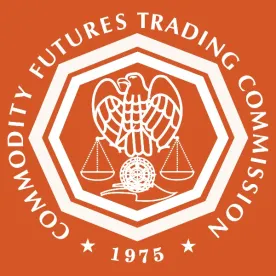On August 10, 2021, the Commodity Futures Trading Commission (CFTC) announced that the US District Court for the Southern District of New York entered a consent order against HDR Global Trading Limited, 100x Holding Limited, ABS Global Trading Limited, Shine Effort Inc Limited and HDR Global Services (Bermuda) Limited (collectively, the BitMEX Entities or BitMEX) and charged each with operating the BitMEX cryptocurrency derivatives trading platform. As a result, market participants should anticipate increased CFTC enforcement within the cryptocurrency space and be mindful of—and comply with—all relevant CFTC rules.
IN-DEPTH
The BitMEX Entities are required to pay a $100 million civil monetary penalty and provides that up to $50 million of the penalty may be offset by payments made by the BitMEX Entities or credited pursuant to a Consent to Assessment of Civil Monetary Penalty entered by the Financial Crimes Enforcement Network (FinCEN). The order also prohibits BitMEX from making further violations of the Commodity Exchange Act (CEA) and the CFTC’s regulations, as charged.
This order stems from a CFTC action filed on October 1, 2020, against the BitMEX Entities and their three individual founders. The CFTC complaint charged the entities and their founders with operating the BitMEX platform while conducting significant aspects of BitMEX’s business from the United States and unlawfully accepting orders and funds from US customers to trade cryptocurrencies, including Bitcoin, Ether and Litecoin derivatives. BitMEX offered leveraged trading of cryptocurrency derivatives to retail non-eligible contract participants and institutional customers in the United States and throughout the world through its website, mobile application and by direct connection to its trading engine servers via the BitMEX application programming interface (API). Additionally, BitMEX acted as the counterparty to certain transactions on its platform and, more importantly, operated without registering as a designated contract market or a swap execution facility with the CFTC. The order also finds that BitMEX violated the CEA by operating as a Futures Commission Merchant (FCM) without CFTC registration.
On May 13, 2016, BitMEX launched its first swap product, a “perpetual bitcoin U.S. dollar leveraged swap product.” On its website, BitMEX described its “Perpetual Contract” (or “perpetual swap contract”) as “a product similar to a traditional Futures Contract in how it trades.” BitMEX solicited orders from US-based customers for futures, options and swaps through its website and on social media, which were available to, and accessed by, US-based customers. BitMEX was aware that US customers used virtual private networks (VPNs) to access the BitMEX platform and offered, entered into, confirmed the execution of and otherwise conducted activities relating to commodity option transactions in interstate commerce. These transactions were not executed on any registered board of trade, nor was BitMEX registered as a foreign board of trade.
BitMEX solicited or accepted orders for the purchase or sale of commodities for future delivery; engaged in soliciting or accepting orders for swaps; engaged in soliciting or accepting orders for retail commodity transactions and/or acted as a counterparty to those transactions. In connection with these activities, BitMEX also accepted money, securities or property—including Bitcoin—to margin, guarantee or secure resulting trades on its platform. (The swaps solicited or accepted by BitMEX included “perpetual swaps” or “perpetual contracts” on Bitcoin, Ether and Litecoin.) BitMEX also operated a trading system or platform in which more than one market participant has the ability to execute or trade swaps on digital assets with more than one other market participant on the system or platform—without registering with the CFTC as a designated contract market or a swap execution facility.
Additionally, BitMEX failed to implement a customer identification program (CIP), including know-your-customer (KYC) procedures, that would enable it to identify US persons using the BitMEX platform or determine the true identity of the vast majority of its customers. BitMEX also failed to implement an adequate anti-money laundering (AML) program, which is required to prevent or detect, among other things, terrorist financing or other criminal activity, and failed to implement procedures to determine whether a customer appears on lists of known or suspected terrorists or terrorist organizations, such as those issued by the US Department of the Treasury’s Office of Foreign Assets Control (OFAC).
Acting Chairman of the CFTC Rostin Benham states that, “this case reinforces the expectation that the digital assets industry, as it continues to touch a broader pool of market participants, takes seriously its responsibilities in the regulated financial industry and its duties to develop and adhere to a culture of compliance.” The CFTC is expected to take prompt action when activities impacting its jurisdictional markets raise customer and consumer protection concerns.
Commissioner of the CFTC Dan Berkovitz stated, “Today’s order enforces our registration, exchange-trading, and anti-money laundering requirements as they apply to cryptocurrency trading. The Commission’s statutory mission also includes promoting ‘responsible innovation and fair competition’ among markets and market participants. Blockchains, smart contracts, and other new technologies have the potential to improve the transparency and efficiency of our derivatives markets. However, for innovation to be responsible and competition to be fair, it must comply with the CEA and our regulations.”
Market participants should be aware that certain products in the crypto space are commodities or derivatives and are regulated by the CFTC. Much like the US Securities and Exchange Commission (SEC) and FinCEN, the CFTC is likely to increase its enforcement actions in the digital asset space, and market participants need to be mindful of all relevant CFTC regulations.





 />i
/>i

